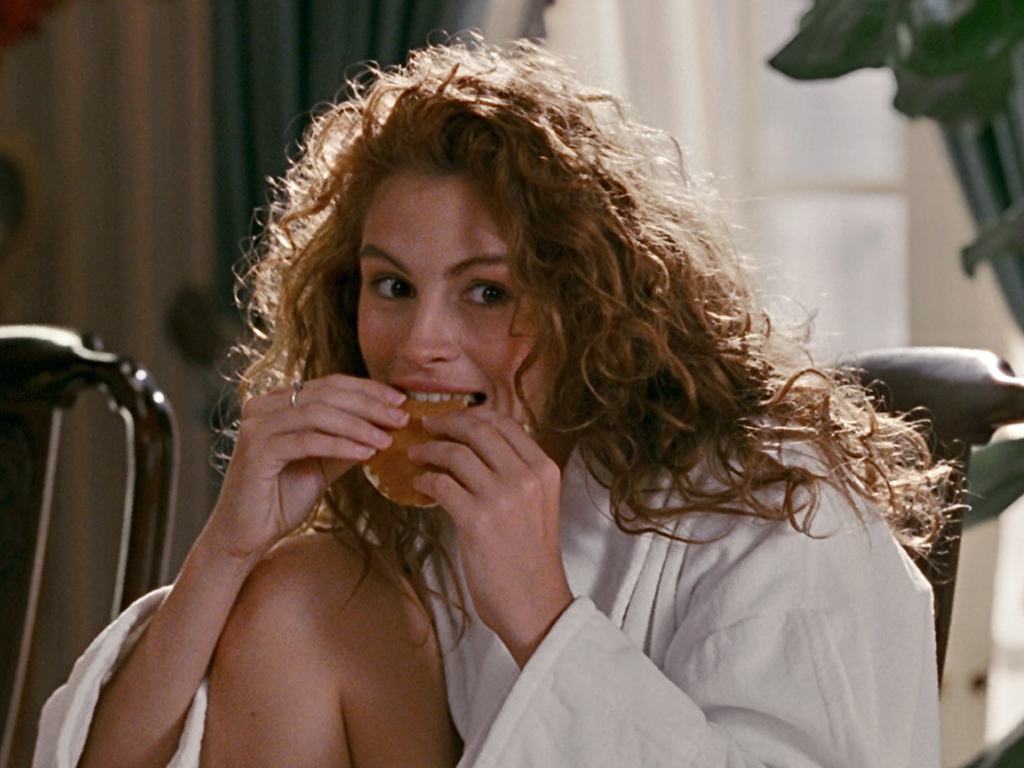The last time I wrote one of these was six months ago. Since then, I completed the "Gilmore Girls" rewatch project, threw together some rando musings on "Sex and the City," and then took a nice break from the internet. When I started this blog in 2016, I had recently moved to Ann Arbor and was working a full-time job that I hated but couldn't afford to quit. Writing about movies and TV was a nice way to escape reality and it also brought cool people — like Sophie, Candace, and Saul — into my life. Unfortunately, it started to feel unpaid labor that dragged on for years and slowly drove me insane. Going forward, my goal is to find a nice balance between regular updates and self-imposed torture. It's safe to say I won't be recapping TV shows with 150+ episodes any time soon 🙃 (Apologies to "The Golden Girls" and "I Love Lucy.")
I honestly haven't watched that many new movies this summer. Instead, I've been spending free time reading and driving myself insane in cool new ways. Pro-tip: if you want to experience a constant inner monologue of self-loathing, try writing fiction. It's really fun! I love feeling like a piece of shit!
In more positive news, Luke (my husband) and I are moving to Westchester (NY) this fall, just like Monica and Chandler. I hope our new house has amazing wiggleworms and zipzorps. I've been trying to escape Ann Arbor for the past seven years and now that we're finally leaving, I'm sad about it. I thought the Prozac was supposed to fix my brain worms but it turns out, all it does is give me stress dreams about loading the dishwasher wrong. I guess it's time to make another appointment with my psychiatrist! In the meantime, here are some book and film recommendations. I'll post a separate one for TV, podcasts, and other shit next Friday (or maybe I won't; you never know with me and I've heard that's part of the fun).
Books
I'm slowly coming to terms with the fact that I'll be dead before I get through my TBR pile.
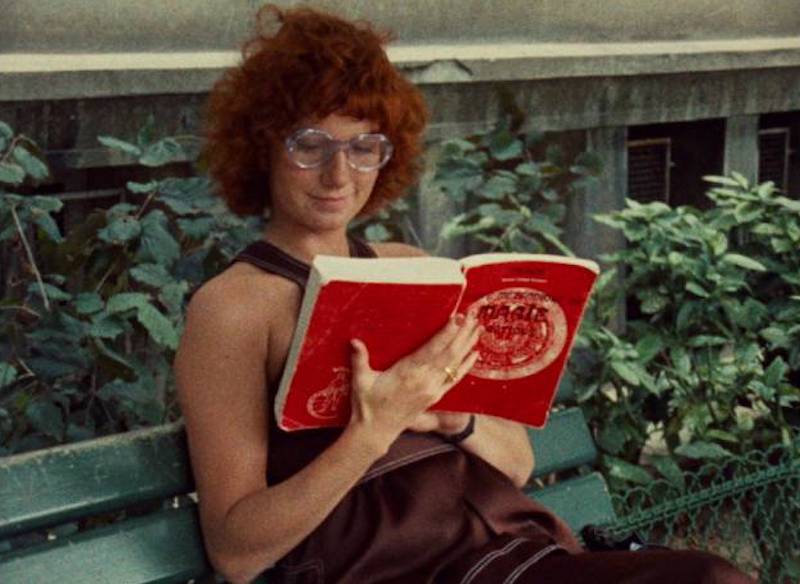
"The Shards" (2023) by Bret Easton Ellis
I've been intrigued by Bret Easton Ellis since I read his first novel, "Less Than Zero," in ninth grade. I didn't like it then, and I HATED it when I reread it earlier this year, but something about it sufficiently piqued my interest, driving me to read his subsequent releases, often multiple times. The way he writes about desire, sexuality, the magic of youth, and isolation — all with a nihilistic flair — really speaks to my soul but I'm typically driven crazy by his edgelord nonsense. I guess I kept reading him over the years because I suspected he'd eventually hit on something I liked enough to overlook the bullshit. Enter: "The Shards."
In 1981 Los Angeles, a serial killer begins targeting teenagers throughout the city and murdering them in brutal fashion. Bret, the novel's protagonist (it's autofiction), is the only person paying attention. The rest of his friend group is too absorbed with typical wealthy Gen X teen shenanigans to pay attention until they're directly impacted. Anyone who listened to "Once Upon a Time… at Bennington College" and/or read Ellis's other novels will recognize several of the IRL counterparts to the primary characters. As a literary gossip hound, these tie-ins were a big part of the fun, so YMMV if that's not your scene.
I don't necessarily think the novel says or does anything revelatory, but it's the best (and least misogynistic) version of his work I've read thus far and I thoroughly enjoyed the experience in a way I hadn't before. It's 600 pages and probably has no business being that long, but I found it soothing. Yes, please give me every fucking street name as you drive around Los Angeles, a city I'm barely familiar with. Describe every house, outfit, and sexual scenario in vivid yet straightforward detail. I'd happily read 1,000 pages. String me along with a mystery that can only end in one vague, unsatisfying way. I'm fine with it because it reminds me of the exact way I felt at seventeen... The confusion, embarrassment, and desperation are all there and the narrative arc serves them well.
Who knows when it will come out considering the ongoing strikes, but an HBO series directed by Luca Guadagnino is in the works, so I recommend reading the novel now if you're interested in watching it. (And if you've already read the book, check out my full review. I don't take pleasure in praising something by a person I would fully loathe IRL, but my response to this novel has me rethinking the position I took here. I really need to read Claire Dederer's "Monsters" because perhaps she has some answers on how to contend with these contradictory feelings.)
"The Wall" (1963) by Marlen Haushofer
This is the best novel I've read so far this year and that's saying a lot because there haven't been many flops. It brought me back to the days of tearing through the "Little House on the Prairie" books as a kid and taking great pleasure in daily routine, physical labor, and life as it is. That's not to say that "The Wall" is pleasurable, exactly. The concept — a woman wakes up on holiday in the Austrian Alps to find that she's separated from the rest of the (extinct) world by an unbreakable wall — is terrifying, but it's satisfying to linger in the mind of someone who enters radically unknown territory and not only finds a way to survive, but also occasionally experiences joy.
Based on her own, minimal descriptions of pre-wall life, it doesn't sound like the woman was very fulfilled. She kind of maybe sort of misses her daughters and husband but 🤷🏼♀️ does she really? She mourns harder for caffeine and books than any of the humans in her former life. Maybe she's able to bear this new existence so well because it's not necessarily worse, just different. Without being direct about any of it, Haushofer's narrative touches on all the big life questions — the "what makes life worth living?" and "who are you if no one is around to witness it?" type shit — and leaves the reader with a non-answer that's open to interpretation.
My edition had an afterword by Claire-Louise Bennett that I loved. As a person who has always looked at traditional life and said, "nope, not for me," her framing resonates. This is one of those books I borrowed from the library and then immediately purchased a copy of because I knew I'd want to read it at least five more times. If that isn't a strong endorsement, I don't know what is.
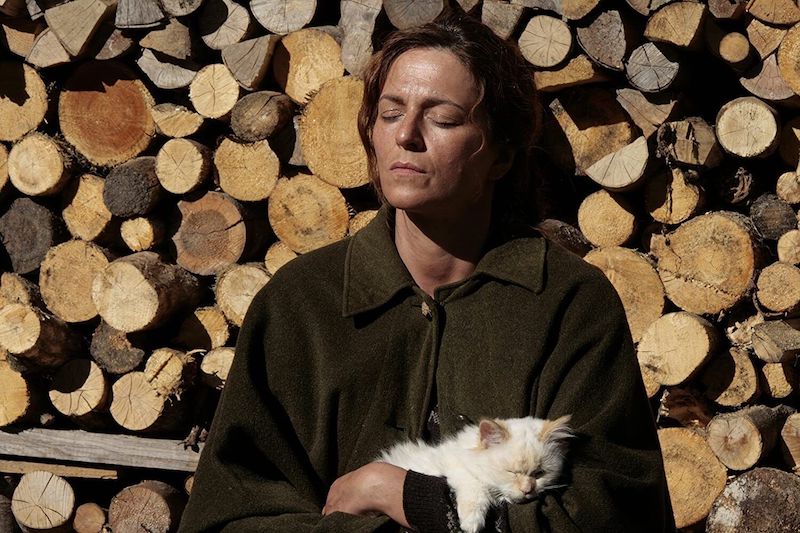
"Big Swiss" (2023) by Jen Beagin
Here's how I described this book to Sophie:
It’s about this 45-year-old woman who ends a long term relationship and moves to Hudson, NY to live in a crumbling old farm house with a friend. She starts working as a transcriber for a sex/love coach and ends up becoming obsessed with one of his patients, who she eventually meets and forms a relationship with IRL. I loved it. It went to completely unexpected places and was more about existential shit/trauma than relationships. The writing is very different from most contemporary novels I’ve read.
I'm really harsh when it comes to contemporary novels and I usually avoid them unless they're recommended by a friend with similar taste, the hype is irresistible (see: Emma Cline's "The Guest"), they take place in a location I adore, or there's a promising screen adaptation in the works. When it comes to the latter, I frequently end up preferring the (TV) adaptation to the novel ("Normal People," "Fleishman is in Trouble," "Sharp Objects," "Big Little Lies," "Watchmen").
In the case of "Big Swiss," I'm kind of worried because it doesn't feel like one of those modern novels that should have just been a screenplay ("Mrs. March," "Lessons in Chemistry," "Stargazer"). The writing style is what I loved most and the plot is totally secondary. It's not at all what I anticipated based on how the book was marketed. Anyway... I wish I could smoke a joint with Sabine while petting her miniature donkeys. Read the book and you'll know what I mean.
"Happy Hour" (2020) by Marlowe Granados
Isa and Gala are twenty-one-year-old expats who come to NYC during the summer of 2013 with a little bit of money and a half-baked plan to cover their rent by selling clothes at a market stall. Mostly, they just swan around the city, let men buy them fancy dinners, and do whatever the fuck they want. Think Holly Golightly minus the cat with no name. In this interview with Granado, Paul Dalla Rosa says "Happy Hour" reminds him of "the first third of "The Bell Jar," which to me is the best part of "The Bell Jar," when Esther is at Ladies' Day magazine with Doreen going to lunches or skipping a party to go to a dark bar and dance with cowboys." If that doesn't sell you, I don't know what will.
This book is all vibes, no plot, and you will either enjoy the aimlessness or loathe it so much that you stop reading at 30%. It's the most glamorous version of broke, early 20s nonsense but also quite anti-capitalist in a way that I dig. At another time in my life, I might have hated it but at this point, I'm nostalgic enough for my idiot youth to read it with a less critical eye.
While my experience of being young and broke in the city involved significantly more panic attacks and drunk crying in the middle of the street, I often tried to create the illusion — both for myself and other people — that it was much cooler, like a low rent "Sex and the City." Sometimes, if I talked about it in those terms enough, I almost began to believe it, just like Carrie Bradshaw or the protagonists in "Happy Hour." The only element of this novel that kind of bothered me is the number of times Granados describes Isa and Gala's lithe beauty. Like ok, these women are hot, young ingenues and because of this, men want to give them free shit. We get it! But honestly, that is a minor critique.
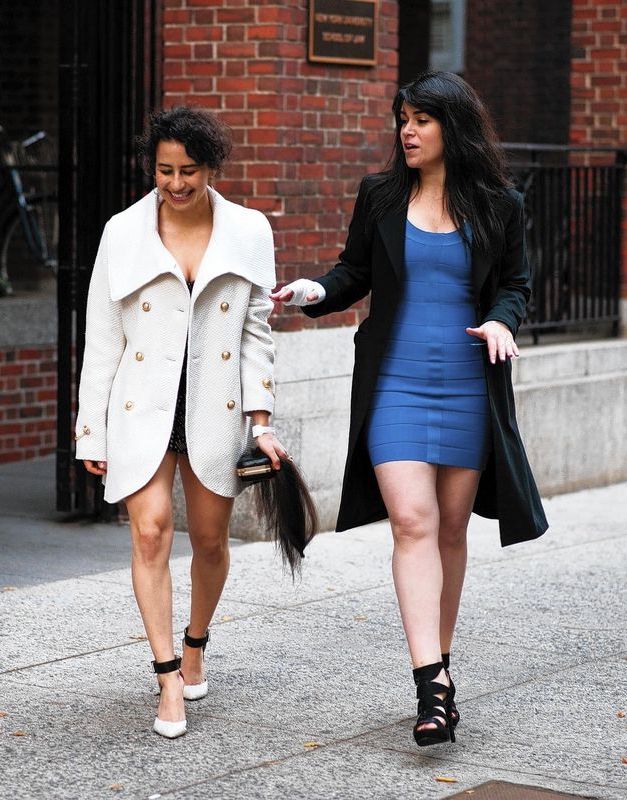
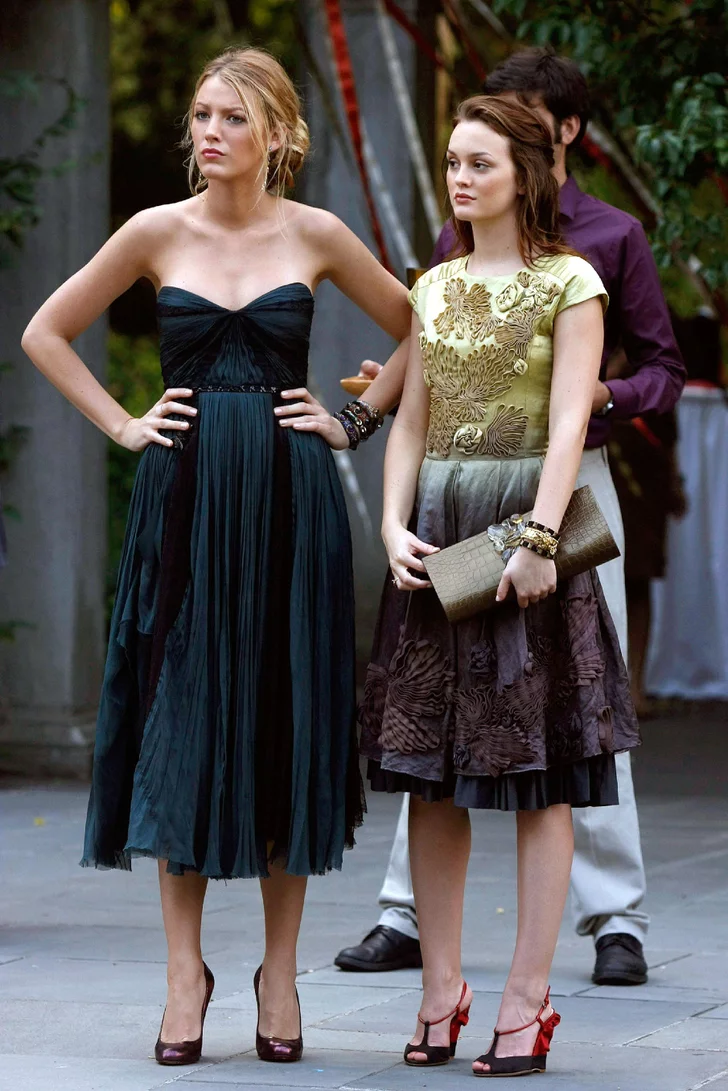
The descriptions don't match up, but I pictured Isa and Gala as a mix between Ilana and Abbi and Serena and Blair.
"Daddy's Gone A-Hunting" (1958) by Penelope Mortimer
I hate when people describe anything other than food as "delicious" but goddammit, Penelope Mortimer's writing is DELICIOUS. This woman knows how to craft a motherfucking sentence. She's also a straight-up weirdo. I don't know if it's because I read this mostly while stoned, but it took me a long time to figure her out tonally. I was initially picturing the Common, the neighborhood where the novel takes place, as a "Stepford Wives"-style London enclave, but as the narrative went on, it felt a lot more "Twin Peaks."
There's one absolutely bizarre scene where all of these neighborhood rich people have a rock 'n' roll-themed party where the butlers and maids are invited for some unexplained reason. It's like "Downton Abbey" on acid and I love it. I'm actually shocked that no one has tried to adapt this for film or tv because it's a great candidate for someone with an offbeat vision. (There is a 1969 film with the same name, but it's not an adaptation.)
As a modern reader, the plot was a little whatever, but surprising for the time. Protagonist Ruth is unhappy in her marriage/on the verge of a nervous breakdown when her 18-year-old daughter, Angela (whose conception rushed her into said unhappy marriage at the same age), becomes pregnant. Ruth arranges for her to have an abortion in an attempt to prevent her from suffering the same sad fate; Angela has the abortion; Ruth becomes a slightly more confident version of herself and discovers she isn't completely without agency. I guess that's a spoiler but not really because this is the kind of book you can't spoil because what makes it interesting isn't the plot, but the way Mortimer analyzes social dynamics and builds her characters.
I didn't expect Rex, Ruth's husband, and Tony, Angela's boyfriend, to be anything other than villains, but they were rounded enough to sometimes, occasionally, almost receive a tiny drop of my sympathy.
Here are some other books (my reviews are linked) that I've read and tremendously enjoyed over the past months:
- "The Door" (1987) by Magda Szabó
- "The Mountain Lion" (1947) by Jean Stafford
- "Our Wives Under the Sea" (2022) by Julia Armfield
- "Paradise Rot" (2018) by Jenny Hval
- "Sorrow and Bliss" (2020) by Meg Mason
- "A Horse at Night: On Writing" (2022) by Amina Cain
- "Everybody Thought We Were Crazy" (2022) by Mark Rozzo - film people, this one is about Dennis Hopper and Brooke Hayward. Jane Fonda, Andy Warhol, and Ed Ruscha make several appearances.
- "Sleepy Hollow Motor Inn" (2021) by Molly Young of NYT's fantastic "Read Like the Wind" newsletter. This one, "Paradise Rot," and "A Horse at Night" are all very short and could easily be read in one sitting.
- "Notebooks" (1936-81) by Tennessee Williams. All I can say about these diaries is BUCKLE UP. It took me several months to finish reading because I had to take depression breaks, especially during the later years.
- "The Spy and the Traitor" (2018) by Ben Macintrye. This is not typically something I would read, but "Oppenheimer" which I hated, made me want to read more about the Cold War and my brother recommended this book. It reads like a spy thriller a la "The Americans" or "Alias." I was hooked from the introduction and couldn't stop reading.
Movies
Mostly old shit, but yes, I did love "Barbie" and maybe I'll write about it later.
"Ida" (2013) by Paweł Pawlikowski (Amazon Prime, Kanopy)
This film had been on my list for a long time because I read that it was one of Sofia Coppola's favorites. Ida (Agata Trzebuchowska), or Anna, depending on who you ask, has been living in a Polish convent since she was orphaned during the German occupation of World War II. She's about to take her vows when her only surviving relative, bohemian chain-smoker Aunt Wanda (Agata Kulesza), requests a visit. The two women embark on a family history road trip where past events reveal themselves and momentarily derail the course of Ida's life.
Jo and I watched this back in January, so the specific details are a little hazy, but here are some highlights from our post-screening text convo:
Lindsay: That was a surprising movie at every turn. I loved it and have no criticisms. I was onboard with wherever it wanted to go. And it ended on the perfect note with a decision made, but lingering uncertainty in the eyes.
Jo: Truly a lovely film. Just the right amount of everything. Not a ton of dialogue but I felt like everyone was fleshed out so well.
The cinematography, done by Lukasz Zal and Ryszard Lenczewski, is gorgeous and the screenplay is co-written by Rebecca Lenkiewicz of Steve McQueen's "Small Axe" anthology, a recent-ish favorite.
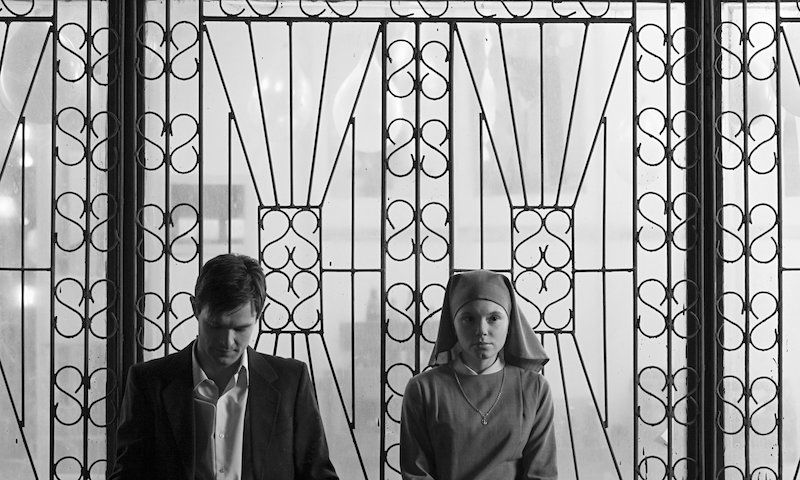
"Ingrid Goes West" (2017) by Matt Spicer (Max)
I did a big Aubrey Plaza rewatch post-"White Lotus" S2 and now have even more respect for her career trajectory. Whether you enjoy them or not, she's always picked offbeat projects that don't always work but are never boring ("Happiest Season," "Black Bear," "Emily the Criminal"). Of everything I watched, "Ingrid Goes West" was my favorite. It explores the intersection of social media and mental illness in a thoughtful, nuanced way that I think we'll look back on as ahead of its time.
The titular character (Plaza), becomes unhealthily obsessed with LA influencer, Taylor Sloane (Elizabeth Olsen), who she cons her way into befriending IRL. Eventually, everything goes off the rails exactly like you think it will and if you're anything like me, you'll have to watch through your fingers c/o crushing secondhand embarrassment. Although this description might bring to mind movies like "Single White Female" and "Fatal Attraction," "Ingrid" never delves into erotic thriller territory.
When speaking about influences, Spicer says he and his co-writer, Dave Smith,
talked a lot about "The King of Comedy," "The Talented Mr. Ripley," "Chuck & Buck"—all great movies with an antihero lead who goes down this dark path and is obsessed with something or someone. We wanted to make one of those, but for our generation.
As with the aforementioned novel "Sorrow and Bliss," I appreciate that Spicer and Smith don't give Ingrid a specific diagnosis, which allows the story to work on several different levels instead of becoming solely about mental illness. They also manage to make the film funny in a way that isn't mean-spirited. The writing and Plaza's performance both acknowledge the absurdity of Ingrid's behavior while aligning the viewer with her in a way that generates empathy.
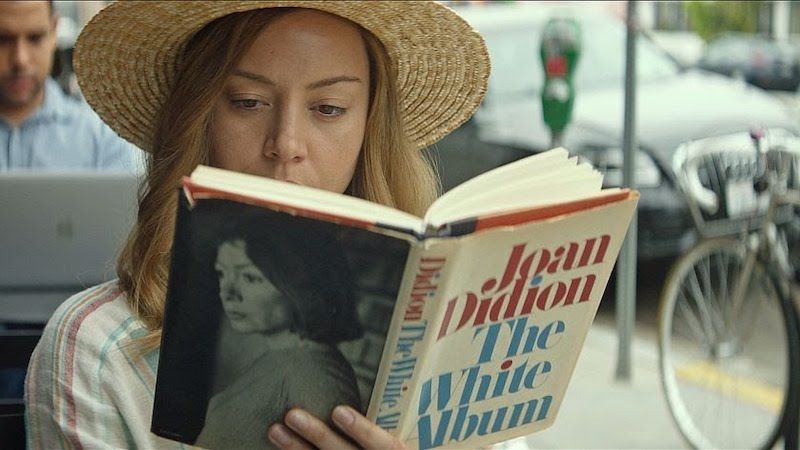
"Showing Up" (2023) by Kelly Reichardt (Rent)
Admittedly, I need to watch this again because after I first left the theater, my reaction was basically just "hmmmm." Reichardt is one of my favorite filmmakers, but only "Meek's Cutoff" and "Certain Women" immediately knocked my socks off. Her other films all took several watches and hours of contemplation to understand and appreciate. (I find this pedantry enjoyable.) What I love most about Reichardt is the way she forces careful observation. If you want to understand what she's trying to do, you must use your brain and commit to the process. To some, her minimal dialogue, long takes, and slow pace might seem maddening but if you get on her wavelength, the universe expands in a magical way. She's a total introvert filmmaker, that quietly astute person who shows you things you might never manage to see otherwise. In other words, she fucking rules.
But... in a filmography of quiet films, "Showing Up" might be the quietest. Lizzy (Michelle Williams), a grouchy sculptor with a day job at the Oregon College of Art and Craft, spends all her free time working on pieces for an upcoming art show. Is she supporting herself while still making time for her art? Mostly. Is she finding joy doing it? Eh. As someone in a similar place right now, I understand the conundrum. My friend Kseniya described it like this:
It's a real optical illusion of a story. On one hand, this person has an incredible life, doing what she wants but she can't enjoy any of it so it's prickly and quiet like a lot of Reichardt's other films. But maybe ultimately less tragic? Just sad and lonely.
In his review for Filmmaker Magazine, Vadim Rizov says,
The film operates in a tonal register near Ann Beattie’s best short stories: observations of specific/privileged zones within white-collar/creative class circles, rendered with a mildly satirical judgmentalism justified by its accuracy and judiciousness (a great line: “We’ve got different theories on cultural production, or he just doesn’t like me”). But an operating assumption of the film’s engagement with this space is feeling that it’s essentially worthwhile.
If you care about these things, the film might hit. If not, I suspect you'll feel bored and disappointed. It's another YMMV situation, even for longtime Reichardt fans.
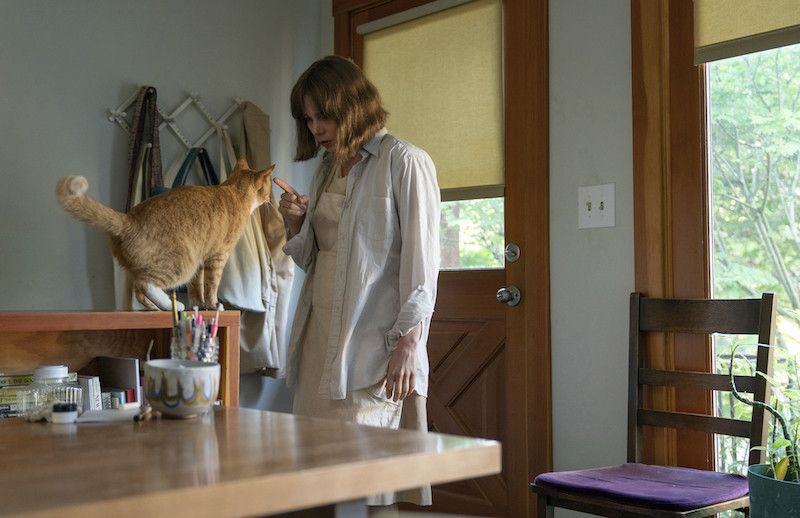
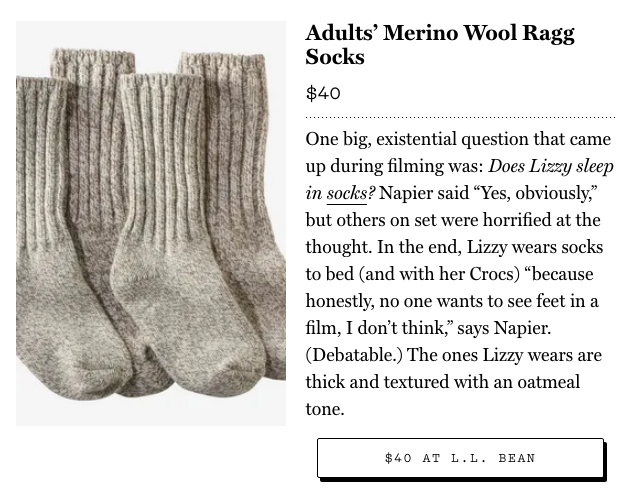
"The Vanishing" (1988) by George Sluizer (Criterion, Kanopy)
If you don't already know about this film and enjoy unsettling shit, stop reading and just watch it (there are many spoilers in the next paragraph). If you've only seen the 1993 Hollywood remake, please know that it is far inferior to the original despite also being directed by Sluizer. The '93 screenplay, written by Todd Graff, is dumbed down for an American audience in a way that completely alters the ending and thus, the entire meaning of the film. The changes likewise do a disservice to the actors (Jeff Bridges, Sandra Bullock, and Luke Danes's BFF, Kiefer Sutherland). Michael Haneke's "Funny Games" this is not! Avoid at all costs.
The OG's story — a woman goes missing and her boyfriend can't cope with the uncertainty surrounding the loss — is simple but flawlessly executed. Here's a snippet from my post-watch journal entry:
This film is a master class on how to build suspense that is not predicated on mystery. We always knew Saskia (Johanna ter Steege) was going to disappear. Her abductor's identity was never in question. Those pieces of info were available from the jump. The ending, however... golden egg dream foreshadowing aside, I did not see that coming.
The film has been described as the ultimate study in existential dread, which I agree with. The only way any of us can know what it's like to die is by dying — there is no other choice. And it works on both levels because for Lemorne, a scientist/numbers guy, there's no way to test his heroic qualities without tempting his worst impulses. The confluence of events that lead to the disappearance feel true to the randomness of life's cruelty — the keychain Saskia wants to buy, the reassuring family photo in Lemorne's car, Rex's almost useful Polaroid if not for a semi truck blocking the view. Unexplainably awful shit will happen to all of us in one form or another and when it does, how will we cope?
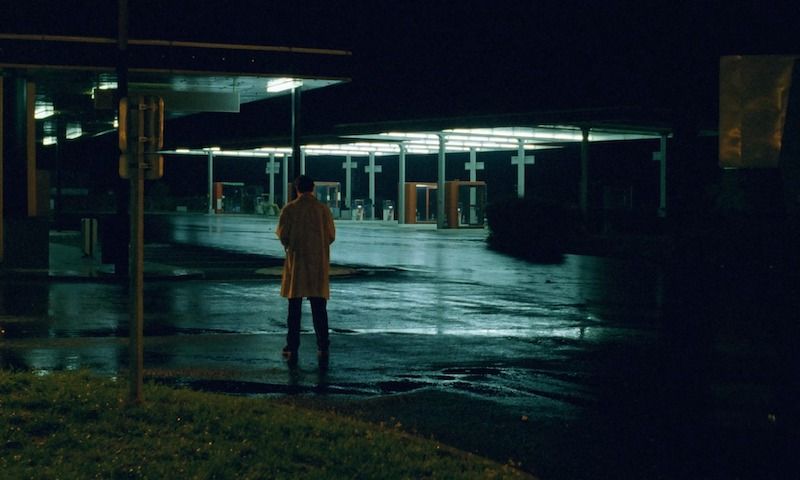
"Alice Doesn't Live Here Anymore" (1974) by Martin Scorsese (Rent)
My friend Orla posted about this film on Instagram, noting that "Scorsese’s body of work is so much more diverse than he’s often given credit for, and ALICE DOESN’T LIVE HERE ANYMORE is such proof of that (and just one of his absolute best films)." I had never seen it or "New York, New York," so I decided to watch them both. Here are some assorted things I liked about "Alice," which is now my favorite Scorsese film:
- Everything about Alice: the way she's written, Ellen Burstyn's performance, her wardrobe (funky kerchiefs).
- Bespectacled child Laura Dern eating ice cream in a non-speaking diner scene (Diane Ladd, her mom, plays Flo).
- Shaggy-haired child Jodie Foster inviting Tommy (Alfred Lutter III) to get "high on Ripple." Doris/Audrey could have been a standard throwaway "tomboy" role but, as always, Jodie made it something special.
- The Mel's Diner origin story. I somehow never knew the '70s sitcom "Alice," lovingly referenced by Lorelai Gilmore, is based on this film.
- The birth control scene.
- Great use of Elton John's "Daniel."
- I love Valerie Curtin as Vera, too. She's a very Lynchian character.
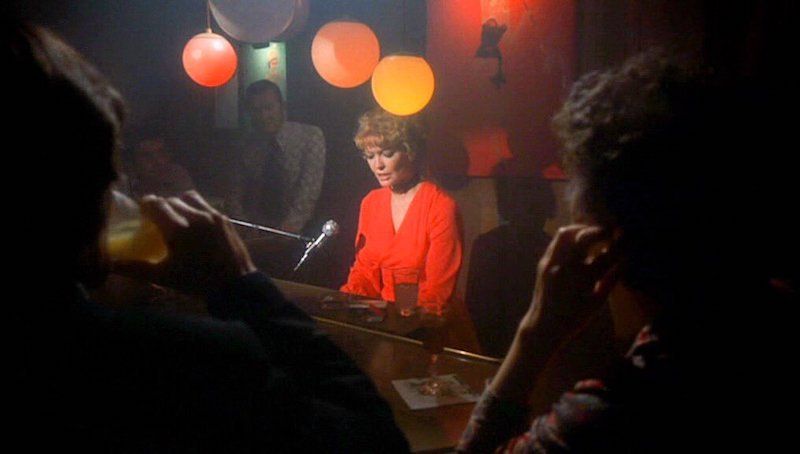
If I saw it without knowing the director, I never would guess it was Scorsese. I'm trying to catch up on all of his films I haven't seen before "Killer of the Flower Moon" next month (Lily Gladstone, fuck yeah). I wish I could say that I liked "New York, New York" as much as "Alice," but it was a chaotic, cocaine-laden slog. I'm still glad that I watched it because it led me to this excellent piece about the film's backstory. I desperately wish the writer, Hilary Jane Smith, hadn't stopped her weekly column because it was SO GOOD. I came to it late and tore through the archive. She has a fantastic piece on Cher, too.
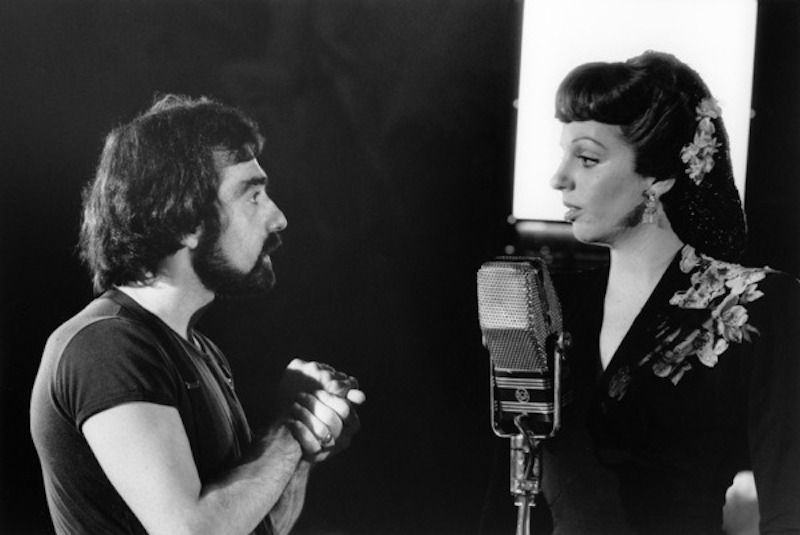
As for promising upcoming movies, well... TIFF is currently happening, so keep an eye on your favorite film critics covering the festival. Off the top of my head, I know that Alex Heeney and Marya E. Gates are both attending, so definitely check out their reviews. I asked Alex what she's most excited about watching and these are a few of the (many) films she mentioned:
- Agnieszka Holland's "Green Border"
- Radu Jude's "Do Not Expect Too Much from the End of the World"
- Angela Schanelec's "Music"
- Frederick Wiseman's "Menus-Plaisirs Les Troisgros" (I'm also excited for this, especially after my Kanopy deep-dive)
- Warwick Thornton's "The New Boy"
She's great at discovering hidden gems that fly under the radar, so I always appreciate her recommendations. I refuse to participate in Film Twitter (Film X, Film Threads? Lol fuck it all), so I don't know what's getting all the hype, but I'm personally stoked for Justine Triet's "Anatomy of a Fall" and Alice Rohrwacher's "La Chimera."
Here are some other 2023 films on my radar that I haven't seen yet:
- Andrew Haigh's "All of Us Strangers" (I want Saul to do a "Looking" rewatch with me)
- Emma Seligman's "Bottoms" (I didn't love "Shiva Baby," but I do love Rachel Sennott and Ayo Edebiri)
- Garth Davis's "Foe" (Paul Mescal and Saoirse Ronan, say no more)
- Sofia Coppola's "Priscilla"
- Christian Petzold's "Afire"
In other news, Richard Linklater is very pessimistic about the future of movies. Maybe I'm just a cranky old bitch because I kind of agree with him. What does everyone else think? Ok, my Benadryl is kicking in (I'm writing this Thursday night), so TTFN and have a lovely weekend full of good shit only 😴

